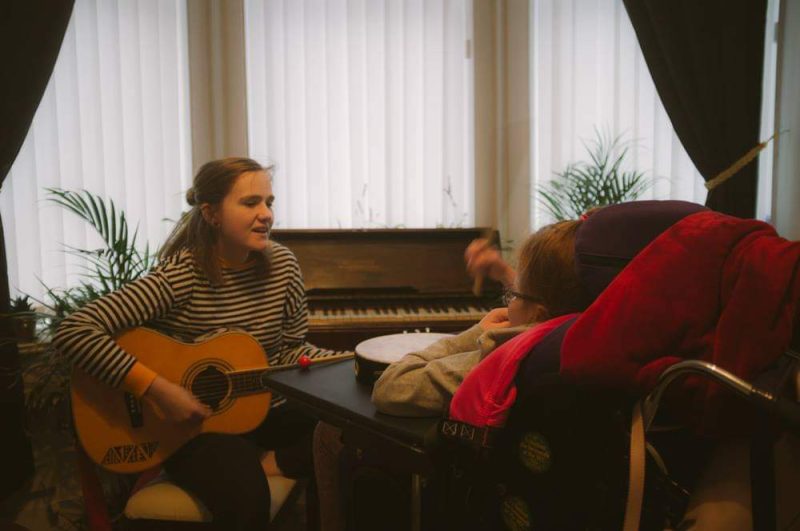Research Shorts: Inclusive and meaningful post-school music education for learning disabled students
22nd October 2024

Beth Black
This week I’m really excited to be sharing the emerging research project from doctoral student, Beth Black at Leeds Beckett. I was lucky enough to see Beth present their work earlier this year. So it’s been great to find out more about how the project has been going, and the important questions the work is starting to raise about what meaningful inclusion for learning disabled students might look like beyond school settings.
Beth explained ‘the study explores how learning disabled musicians might gain access to full-time music study in colleges and universities’. She’s just started the second year of the PhD program, and the shape of the project is well laid out:
For this work, I’m using an emancipatory research method. I’ll be conducting interviews with learning disabled musicians who haven’t accessed mainstream music education. I’m also piloting and evaluating new courses in further and higher education establishments that enable disabled musicians to access units on mainstream music courses.
 She went on to tell me how things were going in the second year: ‘The things I’m working on just now are the language used around learning disability, collecting data via interviews and piloting a music course inside a mainstream college.’ She explained her methods, in particular the use of an ’emancipatory methodology’ – which I asked her to tell me more about:
She went on to tell me how things were going in the second year: ‘The things I’m working on just now are the language used around learning disability, collecting data via interviews and piloting a music course inside a mainstream college.’ She explained her methods, in particular the use of an ’emancipatory methodology’ – which I asked her to tell me more about:
‘Emancipatory methodology was developed in an attempt to dismantle the hierarchical social structure of disability research. It is underpinned by the desire to challenge power structures, establishing a dialogue about those structures between research communities and disabled people.’
I asked Beth about who this work might influence. She hopes it might ‘inform education institutions of the importance and benefits of including learning disabled students in their programmes. By uncovering stories of lived experience of accessing music education, I hope to find the common barriers and begin to open conversations about what support institutions might require to improve access.’
Beth also explained how they got started in the PhD, and they explained: ‘I’ve worked as a musician for 10 years, teaching and performing alongside disabled musicians, it’s given me huge insight into the barriers faced by disabled people. I have fond memories of my time in education and I truly believe that having learning disabled musicians on mainstream courses will have huge benefits for everyone involved.’
Beth is still recruiting participants for the research, so if you’d like to be in touch or want more information, you can email here to get in touch with them.
Interview by Dr Sarah K. Whitfield – Research Manager for Music Mark



